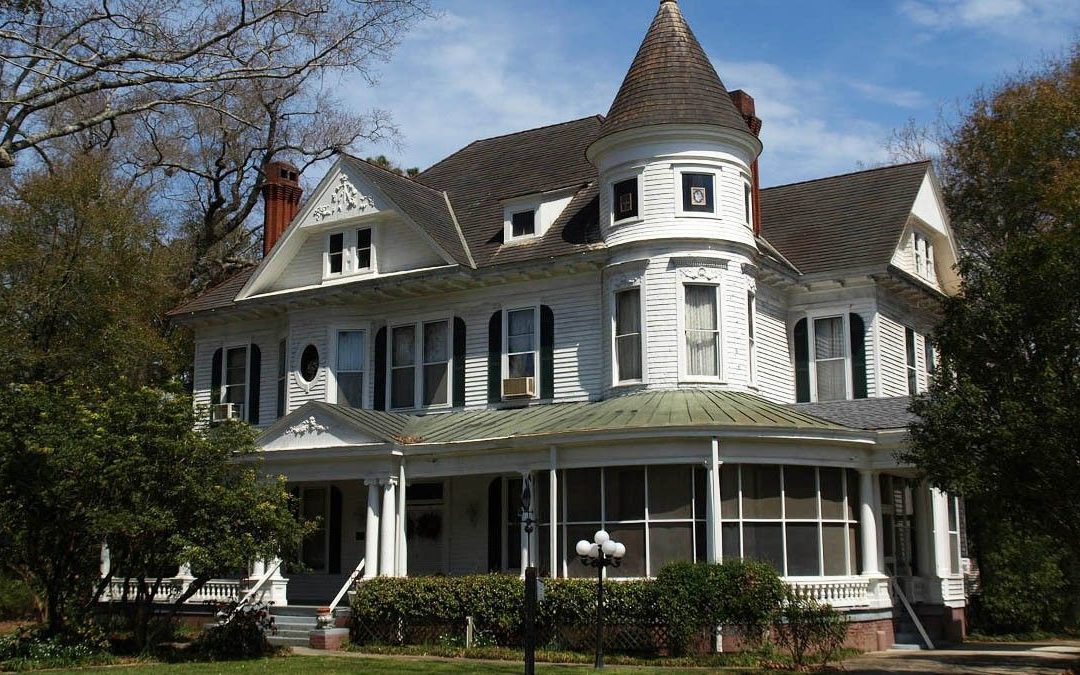Want To Buy a Historic Home? Know the Benefits and Risks MABA Massachusetts FirstTimeHomeBuyers RealEstate
For many, buying a historic home is a dream. If you’ve ever gazed wistfully at a listing for a neglected Victorian manse or eagerly searched for midcentury modern homes in your area, you understand the appeal of owning a home with a fascinating history. But actually buying and owning a historic home is a real commitment one that can come with a great deal of expense, as well as some surprising pitfalls.
What makes a home historic?
Generally, a house is considered historically significant if it is a prime example of a certain style, or something of great interest happened there. (Perhaps it was a stop on the Underground Railroad or the childhood home of an important cultural or political figure.)
The National Register of Historic Places is the official database of properties including homes that are worthy of preservation in the U.S. To be formally classified as a historic home, the property needs to be at least 50 years old and meet one of four criteria:
- The home is associated with a significant historical event.
- The home is associated with a significant historical figure.
- The home embodies a distinctive type, period, or method of construction associated with a master (e.g., Frank Lloyd Wright).
- The home has provided, or is likely to provide, historical information.
What are the benefits of buying a historic home?
“Owning a piece of history is probably the top benefit of buying a historic home,” says Nicholas McMillan, a real estate broker and the owner of Hire Realty in Pleasantville, NY. “The unique experience of owning a historic property can connect history, art, and architectural enthusiasts with their locality and the past.” There can also be a monetary benefit to buying a historic home.
“The value gains of many well-maintained residences in well-kept historic districts have far outpaced those of their more contemporary competitors. A number of things, such as the popularity of a historic neighborhood or rising property values, can contribute to this discrepancy,” McMillan says. And then there’s the chance that you’ll qualify for the National Trust for Historic Preservation’s tax credit program, which provides tax credits to homeowners who rehab historic buildings.
Challenges of buying a historic home
Owning a historic home can be emotionally rewarding, but its financial toll shouldn’t be underestimated. First of all, payment upfront can be more complicated. “It can be difficult to secure traditional financing for a historic home due to the unique nature of the property and the often unknown condition of key components such as the foundation, roof, wiring, and plumbing,” says Jennifer Spinelli, founder and CEO of Niche Home Buyer in Salt Lake City.
Affording costly updates can also be a challenge for buyers of historic homes. Updating an old home’s insulation, for example, is often a hefty project. “Historically, houses were built to breathe so moisture would not create mold or rot in the structure,” says Leslie Saul, an architect with Leslie Saul & Associates in Cambridge, MA. “Now, we try to create insulated envelopes that keep out heat and cold air. I recommend consulting a building specialist when making decisions about how to insulate a historic home.”
Updating heating and cooling systems is essential. “Many of these homes were built without central systems,” Saul says. “Making new systems invisible within historic buildings may seem impossible, but it’s worth the effort to figure out the best way to do it.” Additionally, historic homes are often located in districts with special zoning regulations that can restrict or prohibit certain types of alterations or additions in an effort to preserve the structure’s historical integrity.
These restrictions typically apply to the home’s exterior and often include rules about changing the home’s windows, paint color, or roof. This oversight may add months or years to the renovation process and may require you to apply for additional permits. Under federal law, a property on the National Register has no restriction on how an owner modifies the home, unless the home is receiving federal assistance. However, local preservation laws may apply, and homeowners will need to consult their State Historic Preservation Office before undergoing any modifications.
Renovating a historic home does have its upsides, though. You may be able to cover repairs and renovations of a historic home with grants or loans. “Check the State Historic Preservation Office after looking at general grants for first-time homebuyers,” McMillan advises. “They can aid a homeowner in finding state-specific funding for historic home renovations.”
Tips for buying a historic home
If you’re interested in buying a historic home, be realistic. “Before you start your search, it’s important to have a concrete idea of what kind of maintenance and repairs a historic home may need. Budget for potential updates that’ll bring the home up to modern standards, as well as ongoing costs like painting and landscaping,” says Spinelli.
You should also consult with your local historic preservation organization or historic architecture experts in your area to learn more about how to care for and protect your new home. Once you find a house you like, hire an inspector who specializes in older homes and get price estimates from contractors for all essential repair work. After you sign on the dotted line, Saul recommends hiring an architect with experience working with historic homes. “There is so much to learn about your historic structure, including how it was used in the past,” Saul says.
The post Want To Buy a Historic Home? Know the Benefits and Risks appeared first on Real Estate News & Insights | realtor.com®.
First Time Home Buying in Massachusetts
 MABA Buyer Agents help first time home buyers reduce the stress and frustration normally associated with buying a home or condo – especially for first time home buyers.
MABA Buyer Agents help first time home buyers reduce the stress and frustration normally associated with buying a home or condo – especially for first time home buyers.
As a first time homebuyer in Massachusetts, you can turn to our non-profit organization to help you understand and navigate the complexities of the entire Massachusetts real estate transaction, from mortgage pre-approval until you are handed the keys to your new home or condominium. Each of our member buyer's brokers and agents works only for their buyer-clients and never for the seller of the home or condo that their buyers want to buy.
MABA Buyer Agents will take the time to learn about you and your real estate goals, help you understand your options, including first time home buyer programs, properties and/or condominium associations, estimate real property values and put together a negotiating strategy to help you increase the odds of getting your offer accepted in our competitive Massachusetts real estate market. After advocating to get your offer accepted, your MABA buyer's agent will be there for you at your home inspection and help you protect your deposit through the inspection, purchase & sale and financing contingency periods.
You can buy your first home or condo with confidence knowing that your MABA buyer agent is committed to saving you time and money and helping you make your best home buying decision.
"The MABA agent helped us find the perfect home for us at the right price and we felt extremely good about the final deal."
Article From: "Kathleen Willcox" Read full article
Get Started with MABA
For no extra cost, let a MABA buyer agent protect your interests



